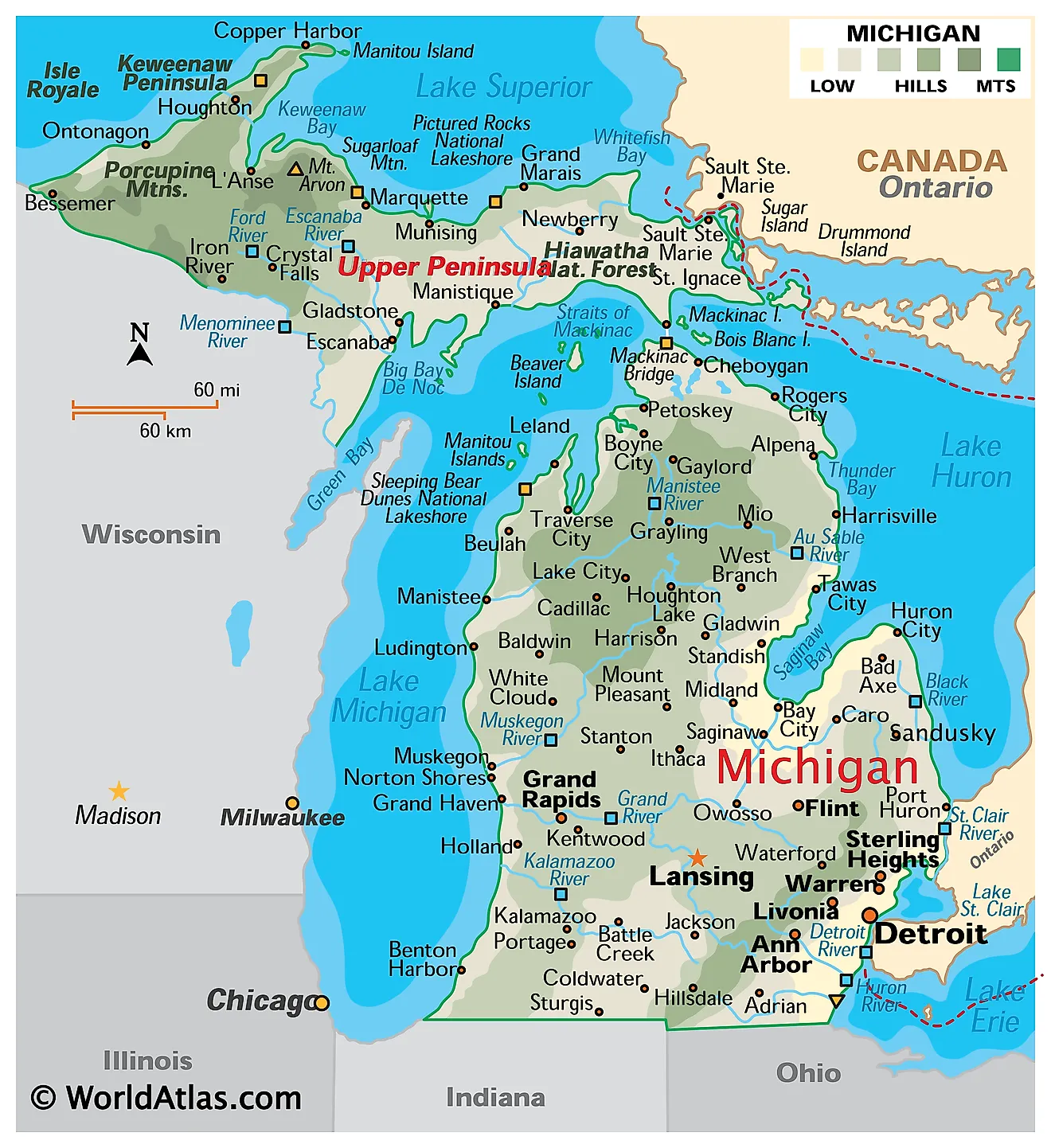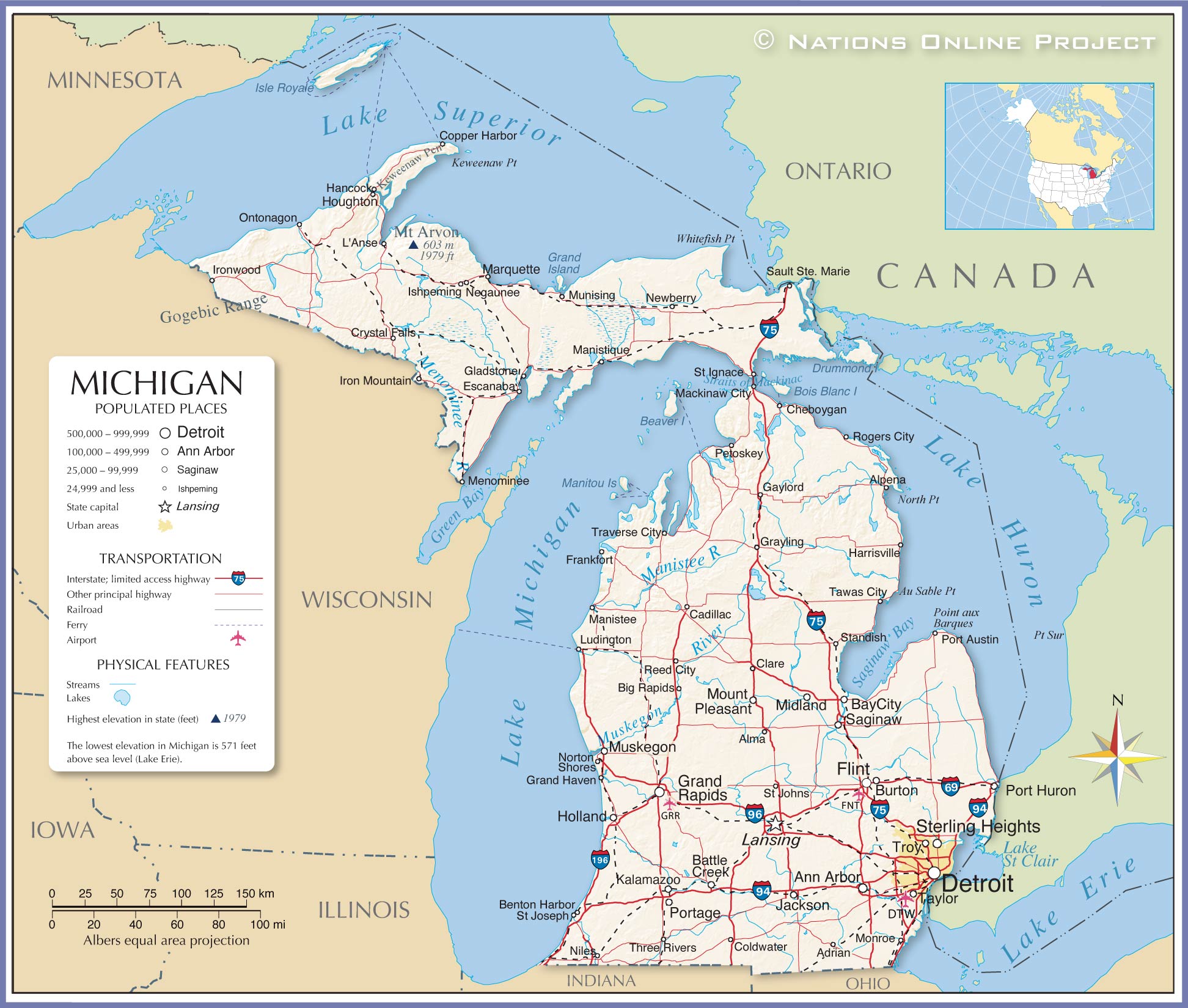Michigan, a constituent state of the United States, holds a special place in the fabric of the nation, and its story, too, is almost one of constant motion and development. From its early days to the present, this place has always seemed to be shaping its own path, creating a distinct character that many people find quite compelling. You know, it's a state that truly has a way of feeling like home to folks who live there, and even to those just passing through.
There's a saying, "Pure Michigan," and it really does capture a lot of what this place is all about. It suggests a certain authenticity, a chance to experience new delights and to do what people have always wanted to do, whether that's exploring vast stretches of land or just finding a quiet spot to be. All of this, it's just waiting to be discovered right here, in Michigan. This sense of possibility, it seems, is a deeply rooted part of the state's identity, a feeling that something good is always just around the bend.
When we think about a place like the Michigan Hall of Justice, it’s not just a building; it’s a reflection, in some respects, of this very spirit. It represents the careful work of making sure things are fair and orderly, a place where the foundational principles of the state come to life. This structure, or rather, the idea of it, stands as a testament to the journey Michigan has taken, from its early beginnings to its current standing, embodying the efforts to maintain balance and proper dealings for everyone who calls this state home.
Table of Contents
- What Makes Michigan So Unique?
- A Look Back - Michigan's Path to Statehood
- How Does Justice Shape a State's Character?
- Why Are State Buildings So Important?
What Makes Michigan So Unique?
Michigan, as a place, has a character all its own, which is that of a constituent state within the larger United States. It's a land defined, in part, by its geography, being split into two rather large land segments. This physical separation, you know, makes it quite interesting, presenting a situation where people across different parts of the state still feel connected to a common identity. The state also shares water and land boundaries with Minnesota to its northwest, showing how interconnected states can be with their neighbors.
This distinctiveness isn't just about how the land is shaped or where it sits on a map. It’s also about the feeling it gives to people. There's a deep sense of identity here, a belief that "there is nothing more pure Michigan than experiencing new delights and doing what we have always wanted to do." This sentiment, it truly captures a spirit of adventure and a connection to the natural world and the possibilities that come with it. It’s a place where, as a matter of fact, many folks feel a strong pull to explore and to make the most of what’s around them.
The state's history, too, plays a part in its uniqueness. Michigan officially joined the union as the 26th state in 1837, a moment that marked a significant step in its journey. This admission wasn't, however, without its own share of drama, including a skirmish with Ohio, known as the Toledo affair. These kinds of historical moments, they shape the collective memory and, in a way, help to define the very character of the state and its people, showing how challenges were faced and overcome.
The Pure Michigan Experience and the Michigan Hall of Justice
The idea of "Pure Michigan" speaks to a certain way of life, a connection to the outdoors, and a sense of finding joy in simple, authentic experiences. It's about discovering what’s waiting right here, within the state’s borders. This feeling, it really encompasses a lot of what people cherish about living in or visiting Michigan. It’s a state where, basically, you can find something that truly resonates with your spirit, whether it's the quiet of a forest or the bustle of a lakeside town.
When we think about a place that embodies this feeling, even a building like the Michigan Hall of Justice, it fits into that broader picture. Such a structure, it needs to reflect the values that make Michigan "pure" – things like fairness, order, and a commitment to the well-being of its people. It's a place where the processes that allow for new delights and the pursuit of what people have always wanted to do can be upheld. In other words, it’s a key part of the machinery that helps keep the "Pure Michigan" experience alive and well for everyone.
A building like the Michigan Hall of Justice isn't just bricks and mortar; it’s a living part of the state’s story, a place where the principles of fair play and proper conduct are, you know, put into action. It stands as a symbol of the state's dedication to its residents, ensuring that the rules that govern daily life are applied with careful thought and consideration. This connection between the state’s identity and its institutions is, in fact, a very strong one, showing how deeply intertwined they are.
A Look Back - Michigan's Path to Statehood
Michigan's journey to becoming a full member of the United States was, in some respects, a long one, culminating in its official admission as the 26th state in 1837. This was a significant moment, marking the point when Michigan truly became its own entity within the larger American framework. The decision to join the union wasn't just a formality; it was a declaration of identity and a commitment to a shared future with the other states. It was, you know, a big step for the people living there.
However, as the historical records tell us, Michigan’s path to statehood wasn’t without its own share of drama. There was, for instance, a notable skirmish with Ohio, often remembered as the Toledo War. This disagreement over boundaries, while perhaps not a full-blown war, was a serious dispute that required careful handling and eventual resolution. It shows that even in the formation of a state, there can be moments of tension and disagreement that need to be worked through with proper consideration.
These early struggles, they actually helped shape the state's character, instilling a sense of resilience and a need for clear, established rules. The very idea of statehood brings with it the responsibility of setting up a system of governance that can manage such disagreements and ensure a fair outcome for all involved. It’s a reminder that the foundation of a state, basically, rests on its ability to create and uphold a framework for justice and order, even when things get a little complicated.
Early Challenges and the Michigan Hall of Justice
The early challenges Michigan faced, like the dispute with Ohio, highlight the fundamental need for a system that can resolve conflicts fairly and peaceably. These moments in history, they really underscore the importance of established procedures and impartial decision-making. It’s a clear example of how a young state, just finding its footing, had to deal with significant disagreements that could have, in a way, caused much more trouble if not handled properly.
A place like the Michigan Hall of Justice, or the principles it stands for, would have been absolutely crucial in those early days, even if it wasn't a physical building at the time. The very concept of a central place where legal matters are handled, where disputes are settled, and where the rules are applied, is essential for any developing state. It provides a sense of stability and predictability, allowing people to feel secure in their dealings with one another and with the government. It’s a pretty vital part of any society, you know.
The lessons learned from that skirmish with Ohio, and indeed from the entire process of becoming a state, would have contributed to the eventual establishment of robust legal institutions. The need for a clear framework, for decisions based on careful thought, and for a place where such matters are addressed, would have become very apparent. So, in that context, the Michigan Hall of Justice, as a concept, represents the culmination of those early experiences and the ongoing commitment to fair dealings within the state's boundaries.
How Does Justice Shape a State's Character?
The presence of a strong system of justice, it truly helps to shape the very character of a state, making it a place where people can feel secure and where things are handled in a proper manner. When there are clear rules and a way to make sure those rules are followed, it builds trust among residents and allows for a more orderly society. It’s about creating a common understanding of what’s right and what’s not, and providing a way to address issues when they arise, which is pretty important for everyone.
Consider the daily lives of people in Michigan; whether it’s about business dealings, personal disagreements, or simply living together in communities, the underlying expectation is that there will be a fair process if something goes wrong. This expectation, you know, isn't just an abstract idea; it's something that influences how people interact, how they plan for the future, and how they view their government. It’s a foundational element that supports everything else that happens within the state’s borders.
Moreover, the way a state upholds justice reflects its values to the wider world. It shows whether it’s a place where fairness is truly valued, where everyone has a chance to be heard, and where decisions are made with careful thought. This reputation, it can attract people and businesses, or, on the other hand, it might deter them. So, in a way, the commitment to justice isn't just an internal matter; it also contributes to the state's overall standing and its appeal to others, which is actually a big deal.
The Spirit of Fairness and the Michigan Hall of Justice
The spirit of fairness is something that, you know, runs through the heart of any good system of justice. It’s about making sure that everyone, regardless of their background, has an equal opportunity to present their case and that decisions are made without bias. This commitment to impartiality is what gives people confidence in the system and helps to maintain peace and order throughout the state. It’s a very basic but absolutely essential part of how a society functions well.
The Michigan Hall of Justice, or any place that serves a similar purpose, stands as a physical representation of this spirit. It’s a building where these principles are, literally, put into practice every single day. From the careful consideration of evidence to the respectful treatment of all individuals, the actions within such a place reflect the state’s dedication to upholding what is right. It’s a constant reminder that the pursuit of fairness is an ongoing effort, one that requires continuous attention and proper conduct from all involved.
It’s also a place where the history of the state’s legal journey is, in a sense, preserved and continued. The lessons from past challenges, like the Toledo skirmish, inform how justice is administered today, ensuring that the mistakes of the past are not repeated and that the state continues to learn and improve. So, this dedication to fairness, as a matter of fact, isn't just about current cases; it's about building on a legacy of proper dealings and looking ahead to a more just future for everyone in Michigan.
Why Are State Buildings So Important?
State buildings, generally speaking, serve as more than just places where work gets done; they are, in fact, symbols of a state's identity and its commitment to its people. They represent the collective efforts of many individuals over time to build and maintain a functional government. Think about it: these structures often stand for decades, even centuries, watching as the state grows and changes, and bearing witness to countless important decisions and moments in history. They are, you know, pretty significant markers in the landscape.
These buildings also provide a central point for the activities of government, making it easier for people to access services and for different parts of the state’s administration to work together. They are places where public servants carry out their duties, where laws are made, and where the daily operations that keep a state running smoothly are performed. Without such dedicated spaces, it would be, arguably, much harder to manage the complex needs of a large population and to ensure that everything is handled in an orderly fashion.
Beyond their practical uses, state buildings often hold a deeper meaning for residents. They can inspire a sense of civic pride and a connection to the broader community. When people see these structures, they are reminded of the shared values and aspirations that bind them together as a state. They represent stability and continuity, providing a physical link to the past while also serving the needs of the present and looking towards the future. So, they're not just buildings; they're very much a part of the state's story.
Places of Purpose, Like the Michigan Hall of Justice
A building like the Michigan Hall of Justice, in particular, is a prime example of a state building with a very specific and crucial purpose. It’s a place dedicated to the fair application of the state’s rules and the resolution of disagreements, which is absolutely fundamental to any well-ordered society. This kind of building provides a clear space where matters of great importance can be considered with the seriousness they deserve, and where decisions that affect people’s lives are made with careful thought. It’s, basically, a cornerstone of how the state functions.
Such a building also helps to make the process of justice more accessible and understandable for the public. By having a designated location, people know where to go when they need to seek a resolution or understand their rights. It creates a sense of order and transparency, allowing individuals to see how the system works and to feel that their concerns are being addressed in a proper setting. This visibility is, in fact, quite important for maintaining public trust and confidence in the legal system.
Ultimately, the Michigan Hall of Justice, as a concept and as a potential physical structure, embodies the state's commitment to upholding its foundational principles. It’s a place where the lessons from Michigan’s history, including its path to statehood and its early challenges, are put into practice to ensure a just and fair environment for all its residents. It serves as a constant reminder that the state’s character is, in a way, shaped by its dedication to proper dealings and the pursuit of what is right for everyone, which is a truly significant endeavor.
Related Resources:



Detail Author:
- Name : Damian Hermann
- Username : torp.seamus
- Email : timmothy63@yahoo.com
- Birthdate : 2007-04-23
- Address : 9237 Rocky Junctions Apt. 719 East Rebeccaville, MA 36694-3153
- Phone : (303) 983-9238
- Company : Kertzmann, Jacobi and Abernathy
- Job : Fire Fighter
- Bio : Aut animi et est minima non quo maxime. Quia porro harum nemo repudiandae est cumque. Exercitationem deserunt eveniet est voluptas dignissimos. Praesentium delectus cupiditate ipsam eum eum sint.
Socials
twitter:
- url : https://twitter.com/jerel.doyle
- username : jerel.doyle
- bio : Minus soluta et eos consequuntur tenetur quis quae. Eum asperiores occaecati ratione commodi natus ut odit. Fuga qui minus unde necessitatibus aut aspernatur.
- followers : 3183
- following : 1190
instagram:
- url : https://instagram.com/jerel_id
- username : jerel_id
- bio : Inventore veniam totam magni omnis. Ut nihil inventore omnis veniam cupiditate. Ab aut et quod est.
- followers : 6673
- following : 1818
facebook:
- url : https://facebook.com/jereldoyle
- username : jereldoyle
- bio : Earum explicabo in nostrum modi vel quis.
- followers : 4229
- following : 1164
linkedin:
- url : https://linkedin.com/in/jereldoyle
- username : jereldoyle
- bio : Incidunt dolorem autem error architecto aut.
- followers : 1781
- following : 1351